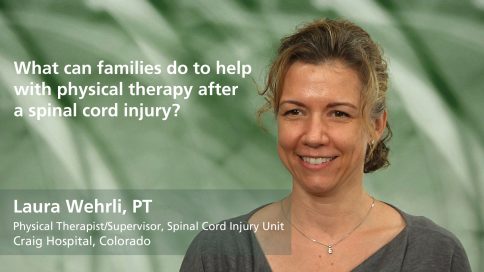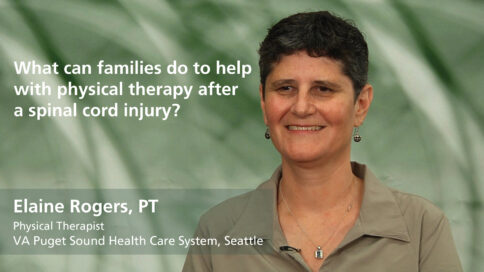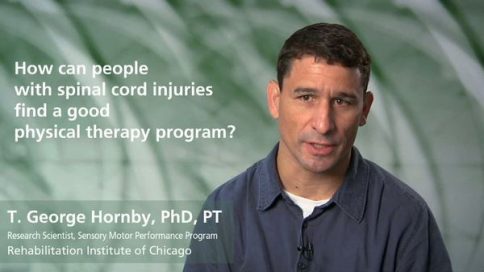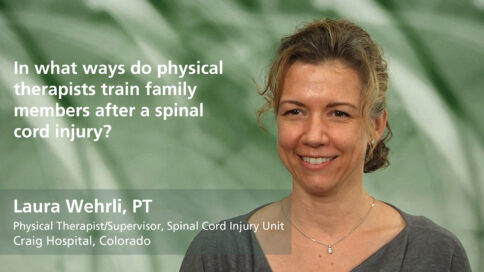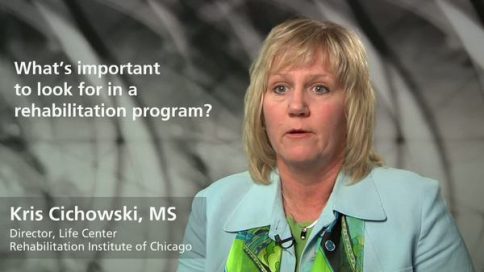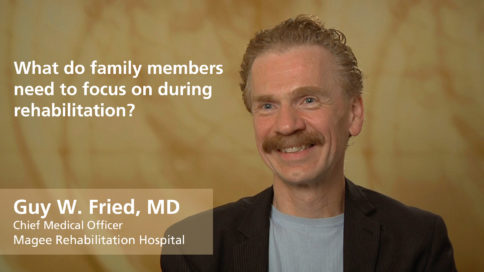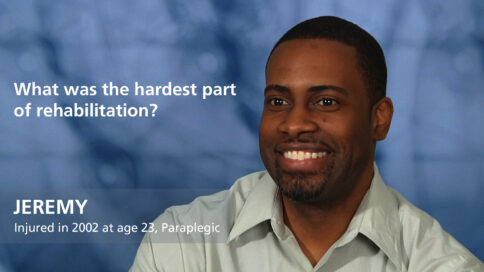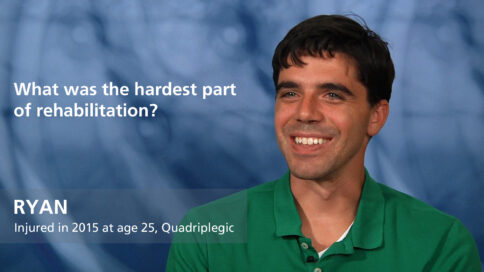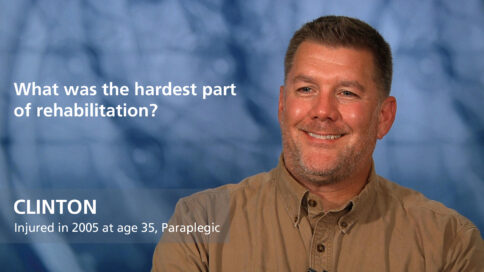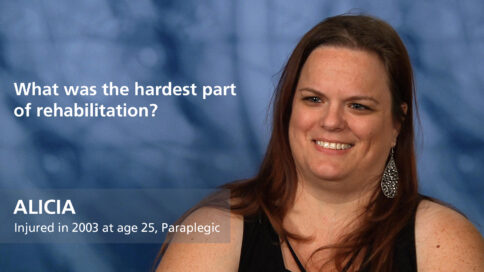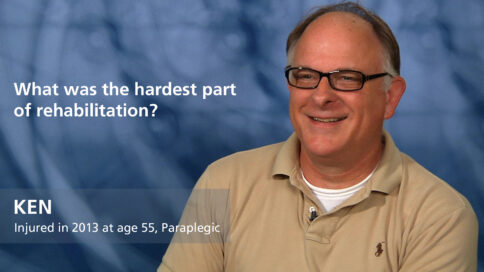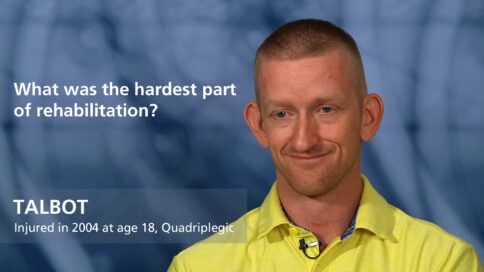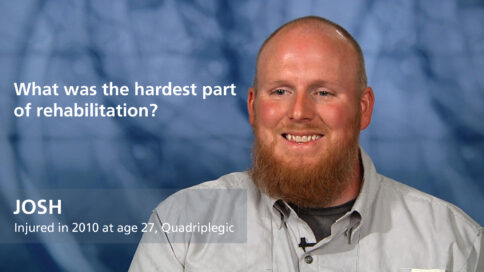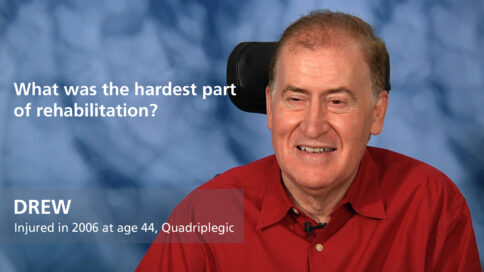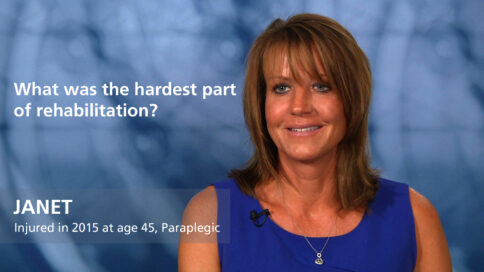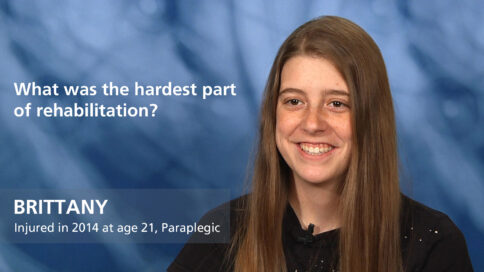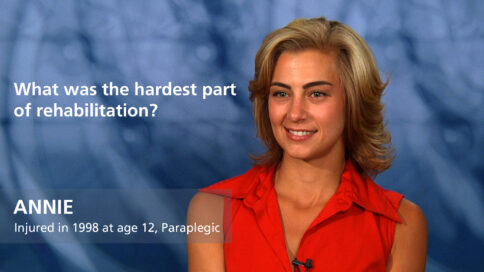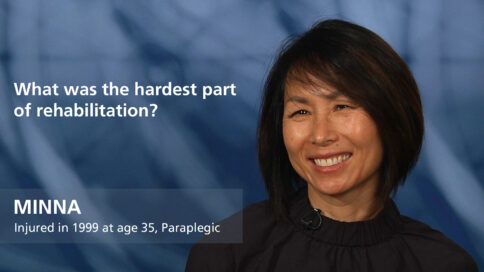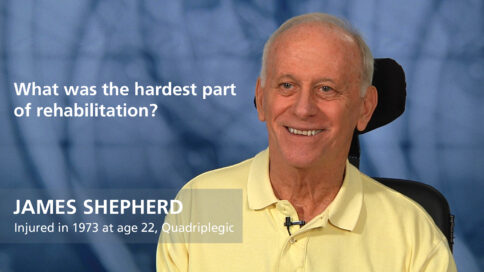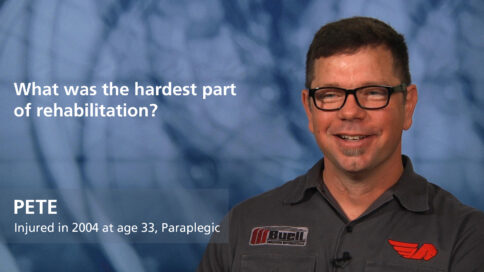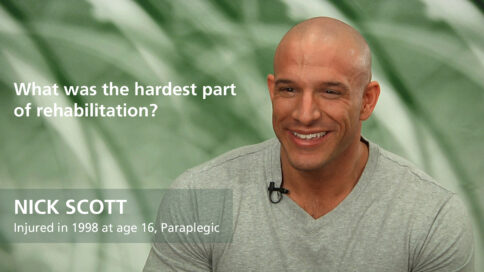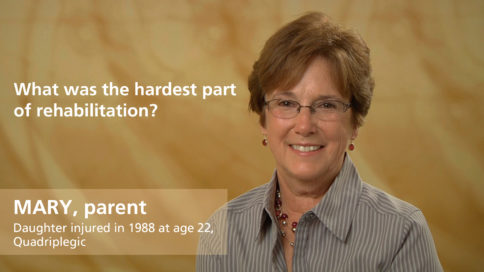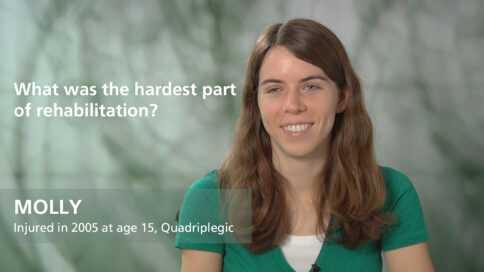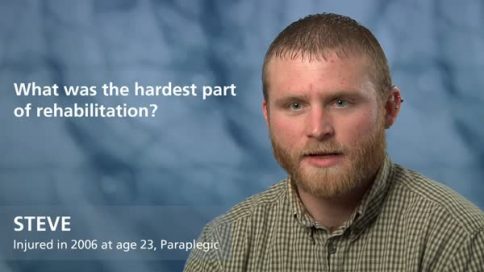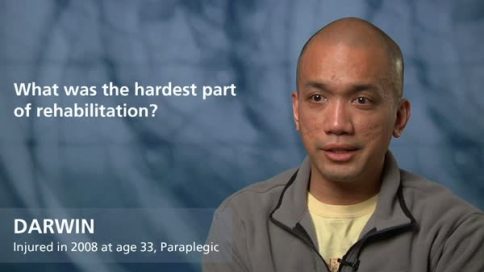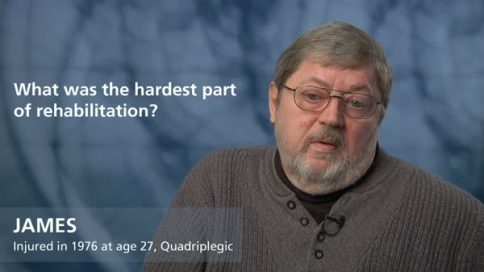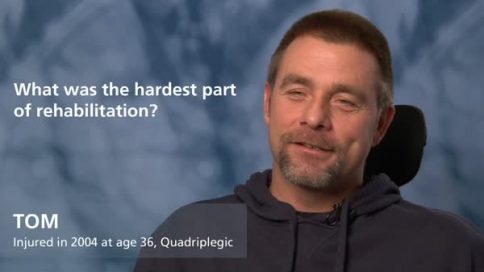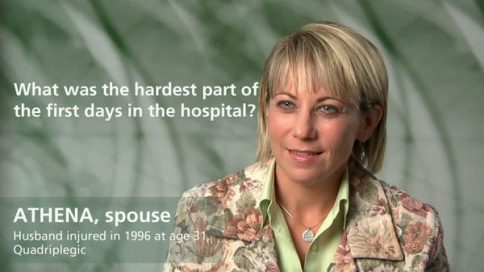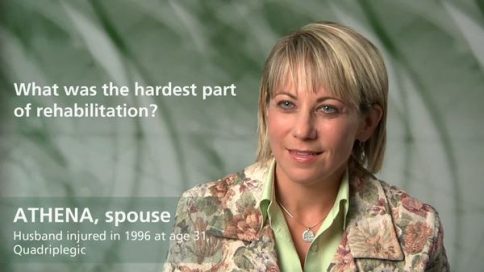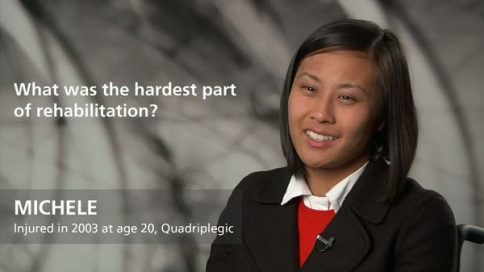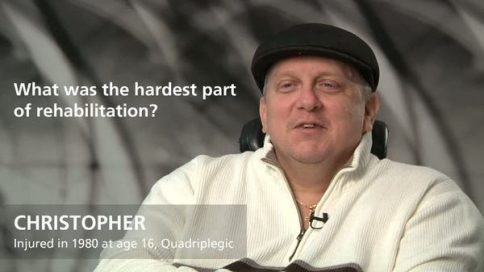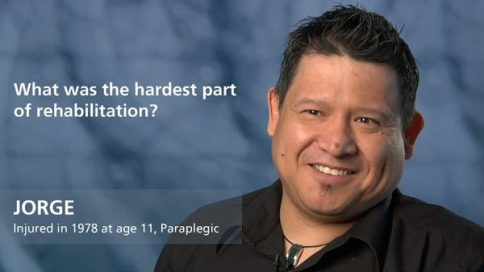What can families do to help with physical therapy after a spinal cord injury? - Isa McClure, MAPT
|
|
What can families do to help with physical therapy after a spinal cord injury? |
|
Isa McClure, MAPTPhysical Therapist, Kessler Institute for Rehabilitation, New Jersey |
||
| Read Bio | More Videos by Isa McClure | |
|
Share |
||
Transcript
It really does not matter what facility a therapist works in, but therapists across the board, on day one we teach the families weight-shifting. You need to be able to assist the patient in shifting their weight forward. Normally you and I we wiggle, move around all the time, but someone who has a spinal cord injury, especially if it’s a very high-level injury on the neck, are not able to move around on their own. So we have to make sure we can help them move by either leaning forward or leaning backwards. We will teach the patients and their families the appropriate way to do those weight shifts in the wheelchair so that nobody gets hurt, and it’s done effectively. Most of the research today has said for roughly every 20 to 30 minutes that someone is sitting in one position, their weight needs to be shifted for five minutes. So why is this so important? Because if someone gets skin breakdown on their bottom, they’re going to be at risk for having to have surgery, for having to go to a different level of care because they need specialized beds, and it’s really just going to affect the daily quality of life. How many people do you know want to spend the next six months in bed because they have a giant wound on their bottom? A lot of times these are avoidable, sometimes they’re not. But what we have to do is make sure that the skin stays clean and it stays clear.
Show Less|
|
||
add
What can families do to help with physical therapy after a spinal cord injury? |
||
Isa McClure, MAPTPhysical Therapist, Kessler Institute for Rehabilitation, New Jersey |
More Videos by Isa McClure | |
| Transcriptadd | share | |
It really does not matter what facility a therapist works in, but therapists across the board, on day one we teach the families weight-shifting. You need to be able to assist the patient in shifting their weight forward. Normally you and I we wiggle, move around all the time, but someone who has a spinal cord injury, especially if it’s a very high-level injury on the neck, are not able to move around on their own. So we have to make sure we can help them move by either leaning forward or leaning backwards. We will teach the patients and their families the appropriate way to do those weight shifts in the wheelchair so that nobody gets hurt, and it’s done effectively. Most of the research today has said for roughly every 20 to 30 minutes that someone is sitting in one position, their weight needs to be shifted for five minutes. So why is this so important? Because if someone gets skin breakdown on their bottom, they’re going to be at risk for having to have surgery, for having to go to a different level of care because they need specialized beds, and it’s really just going to affect the daily quality of life. How many people do you know want to spend the next six months in bed because they have a giant wound on their bottom? A lot of times these are avoidable, sometimes they’re not. But what we have to do is make sure that the skin stays clean and it stays clear.
